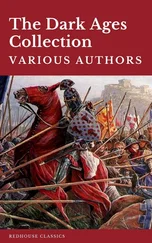Marcian refused to pay this tribute any longer, and at his death he left a well-filled treasury. 97He accomplished this, not by imposing new burdens on the people, but by wisely regulating his expenditure. He alleviated the pressure of taxes so far as Roman fiscal principles would permit. He assisted his subjects from the exchequer when any unwonted calamity befell them. One of his first acts was a remission of arrears of taxation. 98He confined the burdensome office of the praetorship to senators resident in the capital. 99He decreed that the consuls instead of distributing money to the populace should contribute to keeping the city aqueduct in repair. 100He attempted to put an end to the system of selling administrative offices. 101Perhaps the act which gave most satisfaction to the higher classes was the abolition of the follis , the tax of seven pounds on the property of senators. 102
One of his enactments may perhaps be regarded as characteristic. Constantine the Great, in order to preserve the purity of the senatorial class, had declared illegal the marriage of a senator with a slave, a freed woman, an actress, or a woman of no social status ( humilis ). Marcian ruled that this law should not bar marriage with a respectable free woman, however poor, or however lowly her birth might be, and professed to believe that Constantine himself would have approved of this interpretation. 103The Emperor’s most confidential minister was Euphemius, the Master of Offices, whose advice he constantly followed. 104While Marcian was not engaged in hostilities with any great power, there were slight troubles in Syria with the Saracens of the desert, and there was warfare on the southern frontier of Egypt. Since the reign of Diocletian Upper Egypt had been exposed to incursions of the Blemyes and the Nobadae. For the purposes of strengthening the defences of the frontier Theodosius II divided the province of Thebais into two (upper and lower), and united the civil and the military administration of the upper province in the same hands. 105At the beginning of Marcian’s reign Florus held this post and distinguished himself by driving the barbarians who were again annoying the province back into the desert. 106The Blemyes expressed a desire to conclude a definite treaty with the Empire and for this purpose they sent ambassadors to Maximin, who seems to have been Master of Soldiers in the East. Terms were arranged, and it was conceded to the Blemyes that they might at stated times visit Philae in order to worship in the temple of Isis, in which the policy of the Emperors still suffered the celebration of old pagan rites. But we are told that when Maximin soon afterwards died the predatory tribes renewed their raids.
The act for which the reign of Marcian is best remembered by posterity is the assembling of the Fourth Ecumenical Council at Chalcedon. The decisions of this council gave deep satisfaction to the Emperor and Empress; they could not foresee the political troubles to which it was to lead. Pulcheria died in A.D. 453. 107By a life spent in pious and charitable works she had earned the eulogies of the Church, and she left all her possessions to the poor. Among the churches which claimed her as foundress may be mentioned three dedicated to the Mother of God. One was known as the church of Theotokos in Chalkoprateia, 108so called from its situation in the quarter of the bronze merchants, not far from St. Sophia. The church of Theotokos Hodegetria, 109Our Lady who leads to victory, which she built on the eastern shore of the city under the first hill, was sanctified by an icon of the Virgin which her sister-in-law sent her from Jerusalem. More famous than either of these was the church which she founded shortly before her death at Blachernae. This sanctuary was deemed worthy to possess a robe of the Virgin, brought from Jerusalem in the reign of Marcian’s successor, who built a special chapel to receive it. 110In later days the people of Constantinople put their trust in this precious relic as a sort of palladium to protect their city.
Marcian died in the first month of A.D. 457, 111and with him the Theodosian dynasty, to which through his marriage he belonged, ceased to reign at New Rome.
CHAPTER VIII: THE DISMEMBERMENT OF THE EMPIRE IN THE WEST
§ 1. Regency of the Empress Placidia. The Defence of Gaul (A.D. 425-430)
DURING the first twelve years of the reign of Valentinian, the Empress Placidia ruled the West, and her authority was not threatened or contested. Unbroken concord with her nephew Theodosius, who considered himself responsible for the throne of his young relative, was a decisive fact in the political situation and undoubtedly contributed to her security. The internal difficulties of her administration were caused by the rivalries of candidates not for the purple but for the Mastership of Both Services, the post which gave its holder, if he knew how to take advantage of it, the real political power.
The man whom Placidia chose to fill the supreme military command was Felix, of whose character and capacities we know nothing. He remained in power for about four years (A.D. 425-429), 1and, so far as we know, did not leave Italy. He did not attempt to play the active and prominent part which had been played by Constantius and by Stilicho. The Germans, who had penetrated into the Empire, were the great pressing problem, and in the dealings with them during these four years it is not the name of Felix that history records, but those of the two subordinate officers whom we have seen taking opposite sides in the struggle for the throne of Honorius — Boniface and Aetius.
Flavius Aetius was the son of Gaudentius, a native of Lower Moesia, 2and an Italian mother. The career of his father, who fought with Theodosius the Great against the tyrant Eugenius, had been in the west, and Aetius had been given, in his childhood, as a hostage to Alaric, 3and some years later had been sent, again as a hostage, to the Huns, among whom he seems to have remained for a considerable time, and formed abiding bonds of friendship with King Rugila. This episode in his life had a considerable effect upon his career.
A panegyrical description of this soldier and statesman, on whom the fortunes of the Empire were to lean for a quarter of a century, has come to us from the pen of a contemporary. 4He was “of middle height, of manly condition, well shaped so that his body was neither too weak nor too weighty, active in mind, vigorous in limb, a most dexterous horseman, skilled in shooting the arrow, and strong in using the spear. He was an excellent warrior and famous in the arts of peace; free from avarice and greed, endowed with mental virtues, one who never deviated at the instance of evil instigation from his own purpose, most patient of wrongs, a lover of work, dauntless in perils, able to endure the hardships of hunger, thirst, and sleeplessness.”
That Aetius should take a German to wife was characteristic of the age in which an Imperial princess wedded a Goth and an Emperor was on the throne who had Frank blood in his veins. The lady was of royal Gothic family, “a descendant of heroes,” 5and they had a son, Carpilio, who was old enough in A.D. 425 to be delivered as a hostage to the Huns. 6
It was to Aetius that the defence of Gaul was now entrusted; he commanded the field army and soon received the title of Magister Equitum. 7He had to defend the southern provinces against the covetous desires of the Goths, and the north-eastern against the aggressions of the Franks. King Theoderic was bent upon winning the Mediterranean coast adjacent to his dominion, and Aetius established his military reputation by the relief of Arles, to which the Goths had laid siege in A.D. 427. 8Hostilities continued, but a peace was made in A.D. 430 confining the Goths to the territories which had been granted to Wallia. On this occasion the Roman government gave hostages to Theoderic, and it has been suggested that at the same time the Goths were recognised as an independent power, the Roman governors were withdrawn from Aquitania Secunda and Novempopulana, and the Gallo-Roman inhabitants of those provinces passed under the direct rule of Theoderic. 9It may be doubted whether this change came about so early, but in any case the attitude of the Visigoths towards the Imperial government for the ensuing twenty years was that of an independent and hostile nation.
Читать дальше












